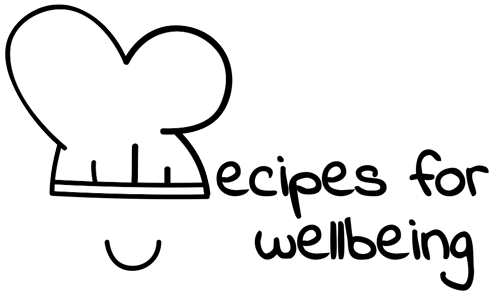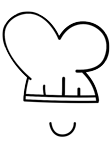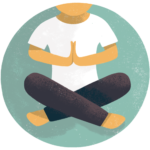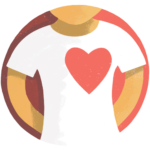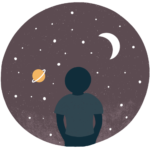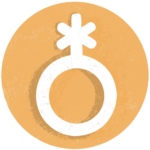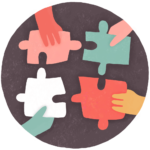About
Recipes for Wellbeing works towards shifting the culture of changemaking to include a focus on wholebeing to enable anyone to contribute more effectively to creating positive change in the world. We interpret wholebeing both as a catalyst for change in the world, and as the change in the world itself. We aim for changemakers to both experience wholebeing for themselves, and to spread wellbeing to their teams, communities, and to the whole world. We believe that focusing on wholebeing opens up a path towards achieving individual and collective flourishing – the ultimate goal of changemaking.
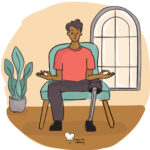
Accessibility
We believe wholebeing tools and resources should be accessible to anyone, which is why the majority of our content is open-source. We are also committed to ensuring accessibility across languages, cultures, and special needs.

Collaboration
We need to move away from the social impact narrative centred around the individual – the “heropreneur”. Hence our focus to bringing wholebeing to teams and organisations as collectives of positive change.
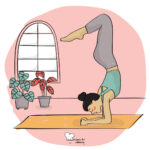
Adaptivity
We interpret wholebeing as an ever evolving concept. We don’t advocate for a “one-size-fits-all” approach that misses out on the richness of contextual nuances. Rather, we propose a wholebeing framework that can be adapted to any culture, place, and time.

What is wholebeing?
Wholebeing integrates what we usually refer to as “wellbeing” and what we call “badbeing”. Wellbeing is more than a good state of health in the absence of problems. It is a positive state of thriving and living to the fullest. But it is not always possible to thrive. Badbeing recognises that we may experience difficult situations which build our resilience and shape who we are and how we act in the world. Wholebeing is about engaging in a life-long journey of inner work to acknowledge, accept, and embody the full spectrum of human experiences. This inner wisdom then guides our changemaking work and deepens our impact in the world.
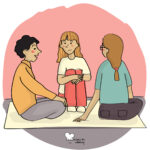
Who are changemakers?
Changemakers are those acting for a purpose that serves other people and the planet. They are driven by an intrinsic motivation to improve the lives of others and to be stewards of our planet. Their life satisfaction is higher compared to the global average (7 out of 10 vs. 5.6 out of 10, The Possibilists Report 2023, P18). However, they often sacrifice their financial stability and wellbeing to change the world. We believe that changemaking should no longer come at the expense of changemakers’ wholebeing.

What’s the state of wholebeing for changemakers?
According to the The Possibilits Report 2023, the percentage of young changemakers who reported experiencing some form of burnout dropped from 59% in 2021 to 26.4% in 2023 (P31). While this data is encouraging, it means that 1 in 4 changemakers still experience some form of burnout and 46% are at high risk of burnout (P22). If the study noticed a drop in burnout levels, the same is not true when it comes to financial stability. In fact, “only 6.4% of all young changemakers can cover all their necessary expenses through their initiatives” (P26), 3% less compared to 2021. Finally, “83.2% of changemakers are very or extremely worried that climate change threatens people and the planet” (P40), with over half of them stating it has a negative impact on their daily lives.
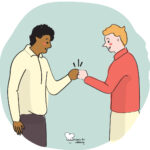
What’s needed from the sector?
The Possibilists Report 2023 encourages support networks to prioritise changemaker wellbeing (P44). Recipes for Wellbeing takes up that challenge and calls for a fundamental evolution in the support changemakers receive. We emphasise a focus on wholebeing structures and processes, knowledge and expertise, as well as competencies and skills, to cultivate cultures of wholebeing for changemakers, their organisations, and their communities.
Wholebeing exists at the intersection of 3 interconnected and interdependent ecologies: individual, community, and Nature. It is important that we balance our efforts across the ecologies so we may create a virtuous circle for wholebeing.

Individual
Wholebeing comes from a deepening centre, a clarity about who we are, what we need, and what is required for us to survive and thrive in our environment. As individuals we only exist in community, and we are also Nature.
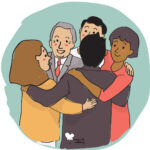
Community
Wholebeing comes from expanding our circle of compassion to accept and embrace that we are not isolated from others and that when our community thrives, we can thrive too. Our human communities only exist in community with the more than human world.

Nature
Wholebeing comes from re-discovering and re-kindling a more harmonious relationship with the human world, and a reconnection back to the Earth community of which human communities are an intrinsic part of.
The interconnectedness between the 3 ecologies also sheds light on the vast range of internal and external conditions that influence wholebeing. Recipes for Wellbeing focuses mainly on the internal conditions to transform them into leverage points to change external conditions. We have identified the following 4 internal wholebeing dimensions.
Mind
Wholebeing for the mind concerns the well-functioning of our minds so that we can cope with stressful situations and work fruitfully, whilst also realising our creative potential to make a contribution to the world. It is not about an absence of mental disorder or ill-health, but about acknowledging and accepting all thoughts.
Body
Wholebeing for the body is about cultivating a kind relationship with our body and supporting its well-functioning by developing healthy eating habits, engaging in regular physical activity, and avoiding preventable diseases. It is not about an absence of physical disorder or illness, but about embracing and appreciating our body as it is.
Heart
Wholebeing for the heart is about fostering compassionate, balanced, and supportive relationships with ourselves, other people, and the world to cope with the emotional burden of our changemaking work. It is not about an absence of difficult feelings or emotions, but about experiencing and integrating the full range of human emotions.
Soul
Wholebeing for the soul is about discovering and nurturing a strong connection with our unique and deepest identity, as well as with the larger consciousness that animates the cosmos and everything in it. For some, wholebeing for the soul is deeply connected with religious affiliation, whereas for others it is about surrendering to the flow of the universe.
By focusing on the internal dimensions of wholebeing (mind, body, heart, soul) as leverage points, changemakers can boost wholebeing across systems. Similarly, there are systems that can be transformed into leverage points to boost wholebeing across the 4 internal dimensions. At the moment, we focus on the following interwoven systems.
Gender
Wholebeing through the lens of gender is about inviting a deeper inquiry into the unique experiences across the gender spectrum and offering relevant support for anyone to thrive in their gender identity. It is not about fitting gender minorities in the cisgender majority.
The Possibilists Report 2023 again confirms that “women are less likely to be able to remunerate themselves than men” (P28) and more likely to be affected by burnout (P33).
Organisations
Wholebeing for organisations is about creating structures and processes to support individual and team wholebeing because when we thrive, we can become more effective in our outer work in service of people and planet. It is not about boosting employee wellness to push them harder in the name of productivity.
Youth
Wholebeing for youth is about cultivating the mindsets, skillsets, and attitudes needed for young people to thrive in an volatile, uncertain, complex, ambiguous, and hyperconnected world. It is not about preparing them to be “cogs in the system”.
The Possibilists Study 2023 highlights that the two greatest risk factors for burnout are self-doubt and juggling various responsibilities (P33). Additional risk factors include discrimination, bullying, and juggling parallel responsibilities (P33).
